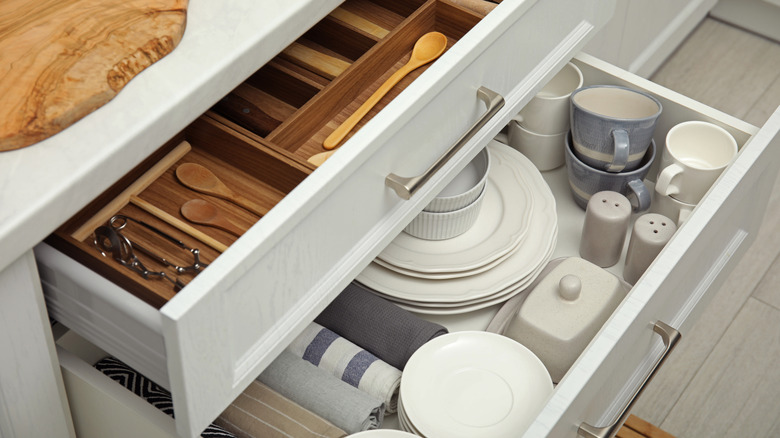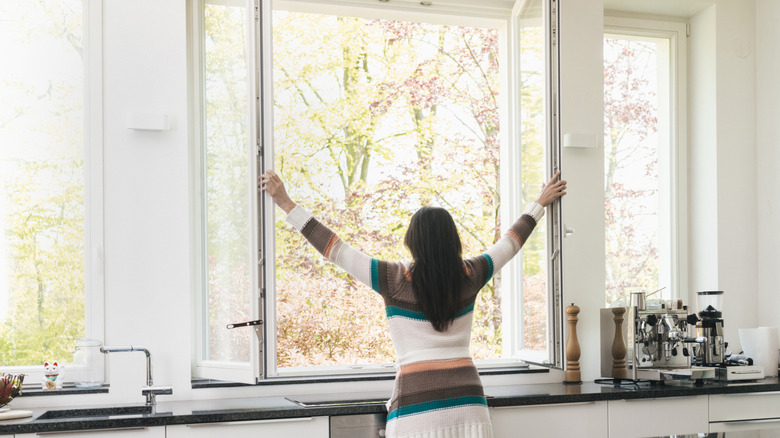Why Your Kitchen Drawers Stink And What You Can Do About It
We may receive a commission on purchases made from links.
There's nothing better than a delicious smell wafting from your kitchen, and that makes foul kitchen odors even more offensive. The worst smell that's coming out of your kitchen might be in your kitchen drawers. If your nostrils are blasted with an earthy, musty scent every time you open a drawer, you may be facing a mold or mildew problem. Kitchen drawers are usually made of wood or fiberboard, which are both porous. This means moisture that enters your kitchen drawer can be absorbed, becoming a breeding ground for mold and mildew and causing that musty smell.
You don't have to live with the musty smell forever. In fact, it's better that you don't, as both mold and mildew can potentially impact your health. Coffee grounds are great for banishing kitchen odors in some situations, but eliminating foul smells from your kitchen drawers requires a different process. Start by lifting out the drawer, if possible, so you have better access to the back, then remove everything from the drawer. Vacuum out any crumbs or debris, and wipe down the inside with a cloth lightly dampened with a mixture of soap and water. A white vinegar and water solution can also help with tougher cleaning jobs.
Once you've done that, sprinkle in some baking soda to coat the inside of the drawer, and let it sit for a while before vacuuming it up or wiping it away. The baking soda will help kill mold and mildew spores in the wood, and it can aid in the neutralization of some odors. Be sure to let your drawers air-dry entirely — if you removed them, you can even put them outside in the sun. Otherwise, keep the air conditioning running in your kitchen, or direct a fan right at the open drawer.
How to prevent mold and mildew in your kitchen drawers
You can try to prevent the smell of musty drawers by making sure there are no water leaks near them from your sink, refrigerator, or dishwasher. It's also important to ventilate your kitchen. When making food, moisture enters the air, especially when doing something like boiling water. If you don't have adequate ventilation in your kitchen, try to open a window or turn on a fan anytime you're cooking to let some of that moisture out. Also, fully dry any utensils, dishes, or ingredient packages before stashing them away. If moisture does make its way into a drawer, wipe it down well and leave it open to dry.
Moisture retention can be mitigated (at least in kitchen drawers) by keeping a moisture-absorbing bag inside. A product like these food-grade desiccant moisture absorbers comes in a wide range of sizes and quantities, and they can be tucked away in the back of a drawer. Another way to prevent the growth and spread of mold and mildew is to make sure your kitchen stays clean. It's a simple kitchen practice that makes everything easier – routine tidying helps keep any additional moisture from seeping into your drawers and adding to that offensive smell.

